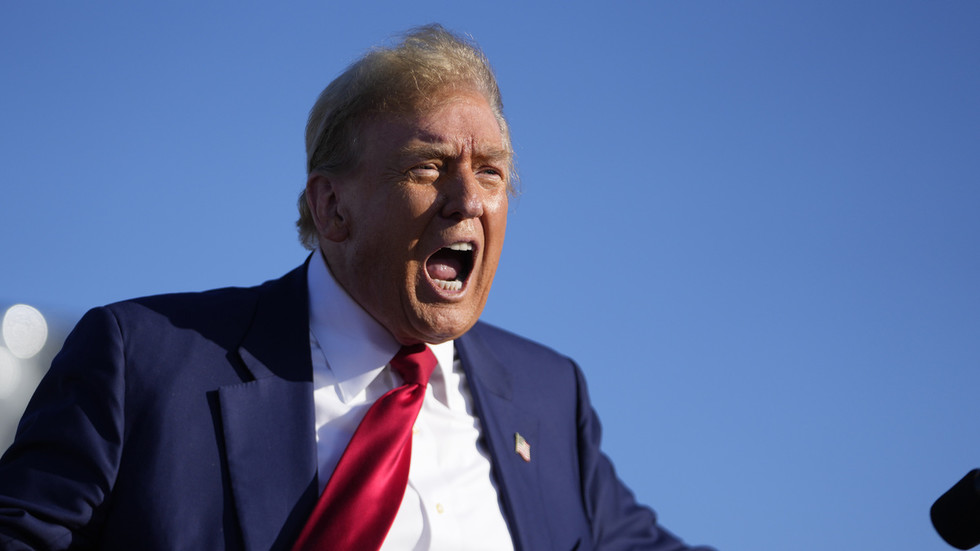The Multifaceted Challenge of Trump’s Influence on the EU
As the political landscape evolves, the influence of former U.S. President Donald Trump on the European Union (EU) remains a prominent topic of discussion. His policies and rhetoric have left a lasting mark on transatlantic relations, reshaping trade agreements, diplomatic engagements, and internal EU dynamics. This article explores the complexities of Trump’s influence on the EU, examining its implications for European politics, economics, and security.
The Shifting Landscape of Transatlantic Relations
During his presidency, Donald Trump adopted a distinctly unilateral approach to foreign policy, often prioritizing American interests over multilateral cooperation. His administration’s skepticism towards international institutions and agreements created ripples across the Atlantic, leading to a reevaluation of the EU’s diplomatic strategies.
Trade Policies and Economic Impacts
Trump’s approach to trade was marked by a focus on protecting American industries, which often translated into tariffs and trade barriers. The most notable instance was the imposition of tariffs on steel and aluminum imports from the EU, which prompted retaliatory measures from European leaders. This tit-for-tat escalation raised concerns about a potential trade war, jeopardizing economic ties that have been foundational to the transatlantic partnership.
- Tariffs and Retaliation: The EU responded to U.S. tariffs with its own sanctions on American goods, including whiskey and motorcycles, highlighting the fragility of the trade relationship.
- Impact on Supply Chains: The tariffs disrupted established supply chains, affecting businesses on both sides of the Atlantic and leading to increased costs for consumers.
Moreover, Trump’s withdrawal from the Transatlantic Trade and Investment Partnership (TTIP) negotiations underscored a broader shift away from multilateral trade agreements. This decision not only stalled potential economic growth but also left a vacuum that other global players, such as China, are eager to fill.
Diplomatic Relations and Global Cooperation
Trump’s presidency was characterized by an “America First” doctrine that often sidelined traditional allies. His contentious relationship with NATO and critical remarks about European leaders strained diplomatic ties. The EU found itself at a crossroads, grappling with how to maintain its strategic partnership with the U.S. while asserting its autonomy on the global stage.
- Defense Spending Concerns: Trump’s insistence that NATO allies increase their defense spending led to tensions, as many EU countries felt pressured to allocate more resources to defense at the expense of social programs.
- Climate Change and Global Agreements: The withdrawal from the Paris Agreement by the Trump administration alienated many European leaders committed to addressing climate change, prompting the EU to strengthen its own climate initiatives independently.
Populism and Political Dynamics within the EU
Trump’s rise to power coincided with a surge in populist movements across Europe, prompting many analysts to draw parallels between his brand of politics and the growing influence of right-wing parties in various EU member states. Leaders such as Marine Le Pen in France and Matteo Salvini in Italy have embraced nationalist rhetoric, framing their platforms in ways that resonate with Trump’s agenda.
The Rise of Nationalism
Populism in Europe has often been fueled by concerns over immigration, economic inequality, and a perceived loss of national sovereignty. Trump’s policies, particularly his hardline stance on immigration, have provided a template for European populists, who argue for stricter border controls and a reevaluation of the EU’s open borders policy.
- Immigration Policies: Trump’s immigration policies have resonated with European leaders who advocate for stricter immigration controls, influencing policy discussions within the EU.
- EU Cohesion Challenges: The rise of nationalist parties threatens the EU’s cohesion, as member states grapple with divergent approaches to sovereignty, integration, and governance.
Internal EU Debates
Trump’s influence has sparked intense debates among EU leaders regarding the future direction of the union. While some advocate for a stronger, more united Europe to counterbalance American unilateralism, others push for greater national sovereignty and a reevaluation of the EU’s integration policies.
Broader Implications for Global Politics
Trump’s presidency has not only reshaped U.S.-EU relations but also had broader implications for global politics. The rise of authoritarianism, challenges to democratic norms, and the increasing importance of non-state actors are reshaping the international order.
Authoritarianism and Democratic Values
The Trump era has emboldened authoritarian leaders worldwide, who have often drawn inspiration from his disregard for democratic norms. This trend poses significant challenges for the EU, which has historically positioned itself as a champion of democracy and human rights.
- Support for Authoritarian Regimes: Trump’s approach to foreign policy sometimes included tacit support for authoritarian leaders, raising concerns about the erosion of democratic values globally.
- EU’s Response: In response, the EU has sought to reinforce its commitment to democracy and human rights through various initiatives, including sanctions against human rights violators.
Geopolitical Rivalry
As the U.S. grapples with its role in a multipolar world, the EU must navigate its relationships with emerging powers such as China and Russia. Trump’s confrontational stance towards these nations has necessitated a reevaluation of the EU’s foreign policy strategy.
Conclusion
The multifaceted challenge of Trump’s influence on the EU is far from resolved. As political dynamics continue to shift, EU leaders must navigate the complexities of transatlantic relations, trade policies, and internal political pressures. The legacy of Trump’s presidency serves as a reminder of the intricate web of global politics and the importance of collaborative efforts to address shared challenges. Moving forward, the EU must balance its aspirations for unity and cooperation with the realities of a changing geopolitical landscape, ensuring that it remains a key player on the global stage.
See more BBC Express News

